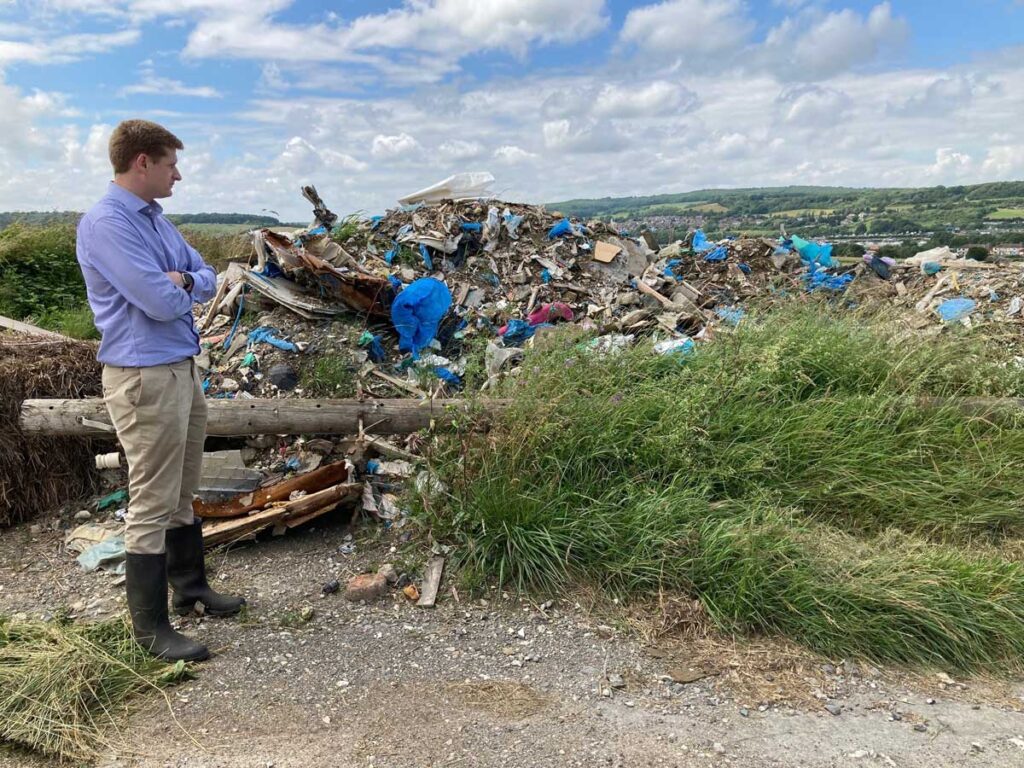Kent’s Police and Crime Commissioner Matthew Scott
Kent’s Police and Crime Commissioner Matthew Scott has written to the Environment Secretary Therese Coffey calling for tougher penalties for fly-tippers.
Matthew Scott says illegal rubbish dumping has become the anti-social behaviour of the countryside and could be costing private landowners between £50 to £150 million a year*.
He says that according to DEFRA there were 24,951 incidents of fly-tipping recorded by local authorities in Kent in 2021/22. In addition, 529 cases were reported to Kent Police.
He says,“I believe that further action needs to be taken in tackling the growing menace of fly-tipping across our countryside. Whilst I welcome measures such as digital waste tracking, fixed penalty notices and the increasing use of CCTV in fly-tipping hot spots, more needs to be done to deter fly-tipping which has become the anti-social behaviour of the countryside.
With the cost-of-living crisis impacting on the lives of millions of people, urgent action is required to tackle this problem. It is time to make criminals pay for fly-tipping, not taxpayers.”
Mr. Scott has written to Therese Coffey, the Secretary of State for Environment, Food and Rural Affairs, following a meeting with farmers, the NFU, local councillors and MPs near Maidstone at the end of last month. They told him of their frustrations and the financial burden fly-tipping was having on the area, as well as the ecological damage it was causing.
- increase in the maximum fixed penalty notices for small scale fly-tipping to £1000
- change the maximum fine of £50,000 to a minimum fine to for repeat, large scale offenders
- allow greater use of powers to impound and destroy vehicles involved in fly-tipping
- introduce a national waste crime offenders list for individuals and companies
- support and fund the creation of a national analysis resource to enable the police to effectively collect and analyse data on fly-tipping and to tackle organised criminal gangs profiting from fly-tipping in the countryside
He adds: “If we are to achieve the Government target of eradicating waste crime by 2043 then greater co-ordination across the country and tougher penalties to deter criminals should be at the heart of our strategy and I would urge you to consider these proposals to help achieve this.”
His request is part of a wider campaign supported by a number of Police and Crime Commissioners across England.
* Figures from the National Fly-tipping Prevention Group
